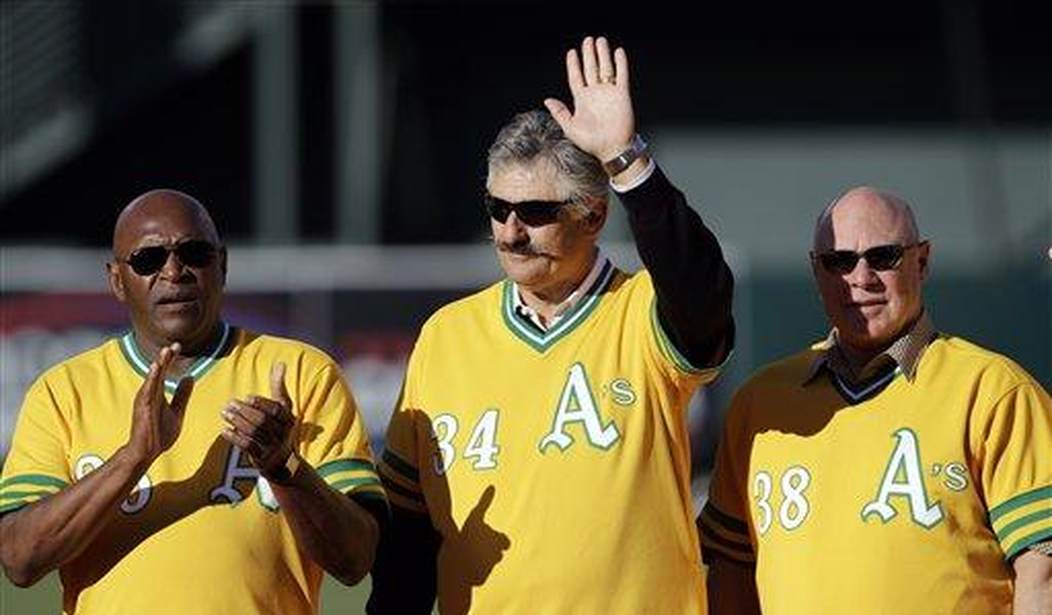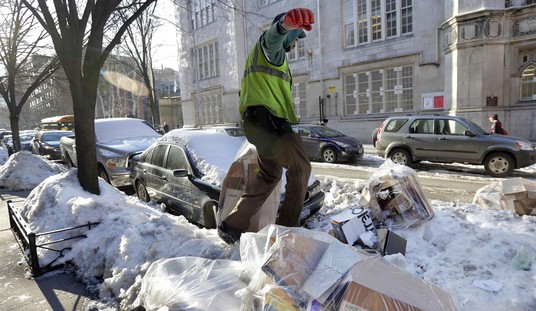Vida Blue, one of the great pitchers of the 1970s and a mainstay of the three-time world champion Oakland Athletics of 1972-4, has died at the age of 73. His passing is another reminder of how much America has changed since his heyday, and not for the better.
Early on in his career, it looked as if Vida Blue was going to be one of the all-time greats. On Sept. 21, 1970, in his eighth start in the major leagues, he pitched a no-hitter against the first-place Minnesota Twins. The following season, he had won an eye-popping seventeen games and lost three with an astonishing 1.42 earned run average by the all-star break, and the whole nation was enthralled anew with the national pastime. Everywhere Blue pitched, he drew massive crowds. Time magazine even put him on its cover, with the caption “New Zip In the Old Game.”
Blue finished with a 24-8 record, 301 strikeouts, and a 1.82 ERA and won the Cy Young Award, which is given to the best pitcher, and was named Most Valuable Player in the American League. I was nine years old, and all I wanted to be when I grew up was Vida Blue.
After that, it all went sour. Despite the national attention that Vida Blue had brought to the Oakland Athletics, the A’s skinflint owner Charlie O. Finley (some things never change; the A’s still have a skinflint owner, but he is a different guy now) wouldn’t pay Blue what he deserved. Amid an acrimonious contract dispute, the greatest pitcher in baseball announced his retirement and actually said he was going to take a job as a bathroom fixtures salesman. Finley and Blue finally reached an agreement that enabled Blue to come back deep into the 1972 season, but the early magic was gone. He remained one of the best pitchers in baseball and had several twenty-win seasons after that, but never attained the dizzying heights of 1971 again. Later on in his career, he struggled with drug problems.
Once his baseball career ended, however, Vida Blue, who also pitched for the San Francisco Giants, became a Bay Area goodwill ambassador, a genial and kindly presence. I had the honor of meeting him a couple of times, and he was extraordinarily gracious, affable, and friendly, even when I was hyper-enthusiastically reciting his 1971 statistics to him from memory on a street in Cooperstown, the home of the Hall of Fame (which he isn’t in, but should be; he was there for an event showcasing black twenty-game winners).
Growing up in Louisiana in the fifties and sixties, Vida Blue certainly experienced discrimination. During his contract imbroglio with Finley, he complained that the A’s owner was treating him “like a damned colored boy.” At the same time, however, in an America that was anxious to put racism behind it and achieve genuine unity among all Americans, Blue was able to become a national hero. He was a black athlete, and he was also an American athlete whom multitudes of boys both black and white admired and cheered on enthusiastically.
Vida Blue had plenty of reasons to have been grim and embittered had he chosen to do so. Instead, he always projected a kindness, warmth and positivity that suggested that there was hope for what we wished to become as a nation despite the ubiquitous presence of race hucksters and grievance-mongers. CBS Sports says that he “worked with several charitable organizations promoting baseball in inner cities,” and whatever his political views were, he generally kept them to himself, the way all athletes and other entertainers used to do.
Nowadays the hucksters and grievance propagandists have won out, and America’s racial divisions are worse than they were since the days of Jim Crow. Identity politics has become ubiquitous. Vida Blue’s death brings back to mind the thrilling summer of 1971, when the heroic exploits of a 21-year-old black man from Louisiana whose very name was a song captivated the entire nation. In the Time cover story, Vida Blue said: “I’m not trying to break any records or strike out a lot of people. I just want to win. I’m not a real pitcher, not yet. I haven’t really mastered my craft. I just want to do the best I can. I want to be a good professional. I want to be good at what I’m doing. I want to be the best.”
For that one summer, he was indeed the best, and he brought out something that was good in all of us. May we recover as a nation the promise of those times. We’ll miss you, Vida Blue.










Join the conversation as a VIP Member